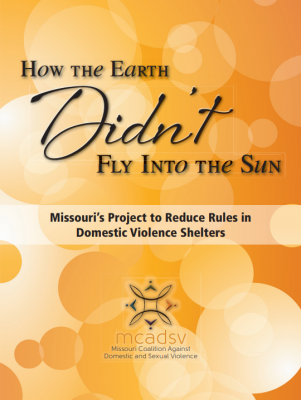Start a Search:
Author: Action Alliance
HIV trends in Virginia 2014 - 2018 - Report
The Division of Disease Prevention produces quarterly and annual reports on HIV Surveillance data, and also produces an Epidemiology Profile of those living with HIV that is updated annually with data on key populations affected by the disease.
These reports can be found here on the VDH website (Data and Reports box)
If additional data are needed, please contact VDH directly to discuss.
The Centers for Disease Control (CDC) also has a number of reports available at their site, with state-level and national data on HIV surveillance. These can be found here.
Honeycomb Reflection and Share Out

In July 2019 the Action Alliance organized and hosted a week-long retreat for young advocates, activists, and artists ages 17-23 called the Honeycomb Retreat. Our participants (fellows) went to workshops on systemic and interpersonal violence, consensual communities, zines for visionary futures, and using herbalism practices to heal from trauma. They also went to art sessions during which they worked with local artists-in-residence to create art in response to the things they were learning in their workshop and their own personal experiences. The week ended with a visioning session where fellows had the opportunity to talk about their skills they bring to our movement, the barriers that impact their full participation, the resources and support they need from adult allies, and what they are excited to do next!
This is an informational and reflective zine that describes some of our goals, frameworks, and outcomes—as well as a general overview of what happened at the retreat and who was there. Please do not hesitate to reach out and connect on these topics!
How the Earth Didn’t Fly Into the Sun: Missouri’s Project to Reduce Rules in Domestic Violence Shelters

This guide is part of a shared goal between NRCDV, state coalitions, and individual programs to find a better way to welcome women and other domestic violence victims -- many of whom had every aspect of life controlled by their partners -- into shelter where they could experience autonomy despite the constraints of a communal living environment. The concept and conflict of having rules in shelter has been repeatedly recycled and re-silenced throughout the movement to end violence against women. This manual tells how Missouri's project became a living laboratory to answer the question, "What would happen if there weren't rules?"
This first-hand account of Missouri's project to reduce rules in domestic violence shelters offers practical tips for other state Coalitions, programs, and individual advocates interested in this approach. It includes the history of the project, examples of common challenges and successes, and logistics of implementation. Surveys, suggestions and the philosophy the Missouri programs followed are also in this ÒHow-toÓ guide, funded by the National Resource Center on Domestic Violence (NRCDV).
* Access the recording of a lively BlogTalkRadio show where the Missouri Coalition Against Domestic and Sexual Violence (MCADSV) discusses this guide - How the Earth Didn't Fly Into the Sun: Missouri's Project to Reduce Rules in Domestic Violence Shelters [23:08]
How to Identify Human Trafficking Victims and Situations
The Office of the Attorney General of Virginia has compiled several helpful resources to aid in identifying and serving people who may be or have been victims of human trafficking. The webpage includes information on how to identify those who may be involved in or victims of human trafficking, a comprehensive list of Virginia’s and federal human trafficking laws, as well as other national resources.
Visit http://www.oag.state.va.us/programs-initiatives/human-trafficking for more information.
HUD, DOJ, and HHS Release Joint Letter Providing Information Regarding Access to Federally Funded Life-Saving Services and Housing for Immigrants
(as originally posted at the HUD Exchange on August 11, 2016)
HUD, HHS, and DOJ Joint Letter Regarding Immigrant Access to Housing and Services
This letter issued jointly by the U.S. Department of Housing and Urban Development (HUD), the U.S. Department of Health and Human Services (HHS), and the U.S. Department of Justice (DOJ) reminds recipients of federal funds how the Personal Responsibility and Work Opportunity Reconciliation Act (PRWORA) of 1996 applies to their programs.
Housing and service providers must not turn away immigrants experiencing homelessness or victims of domestic violence or human trafficking, on the basis of their immigration status, from certain housing and services necessary for life or safety – such as street outreach, emergency shelter, and short-term housing assistance including transitional housing and rapid re-housing funded through the Emergency Solutions Grants (ESG) and Continuum of Care (CoC) Programs. This letter reiterates existing laws and policies and applies those policies to programs that were not in effect when the original Attorney General Order was signed in 2001.
If you have any questions, please submit them to the HUD Exchange Ask a Question (AAQ) Portal. If you have questions related to the CoC Program, please select “CoC Program” from the “My question is related to” drop down list on Step 2 of the question submission process. If you have questions related to the ESG Program, please select “ESG Program” from the “My question is related to” drop down list on Step 2 of the question submission process.
Click here to read the joint letter.

